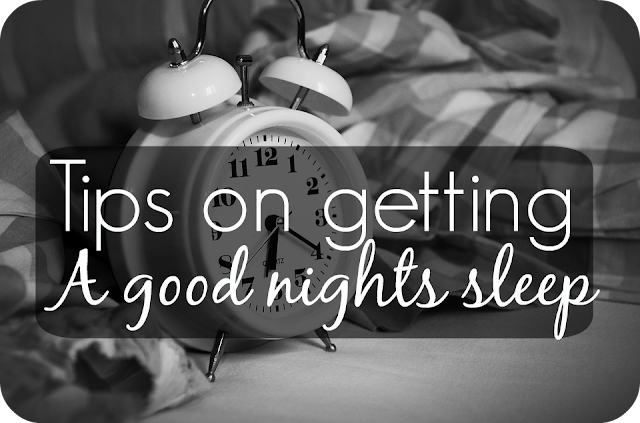If you wake up in the morning feeling more tired then you did the night before it can be incredibly frustrating. Tiredness is common in many people, especially if you're very busy and have a lot on your plate. Constant tiredness however can be a sign that you're not getting as good a night's sleep as you'd like. This could be down to a number of factors all of which in the long run can affect your energy levels. This article will point out some of the most common so you can wake up in the morning full of energy raring to go.
Avoid bright lights before bed
If you find it hard to get to sleep then it's best to avoid bright lights emitting devices for 1-2 hours before bed. When it's dark your brain starts to release the hormone melatonin which helps to regulate your sleep wake cycle and makes you sleepy. If you're spending the
majority of the night browsing Facebook and Twitter or watching TV your brain is constantly being exposed to bright light and is staying alert, thus making it hard for you to get to sleep.
- Try and make your room as dark as possible, get blackout curtains if need be as even the rising sun can draw you from sleep
- If you wake up in the middle of the night try to avoid using the lights as this can make you more alert. Leave a light on downstairs if you can or use a small flashlight if you need to get to the bathroom.
- If you want to read try and avoid e-readers like Kindle Fire's as they're so bright your brain will find it hard to switch off. Aim for a E-reader without its own light source or even a traditional book.
Keep your body in rhythm
 There's nothing your body loves more than a good rhythm. If you're constantly changing the time you go to sleep and wake up this can be confusing and leaves your body clock in limbo.
There's nothing your body loves more than a good rhythm. If you're constantly changing the time you go to sleep and wake up this can be confusing and leaves your body clock in limbo.- Try to aim to go to sleep the same time and wake up at the same time - even at weekends
- If you can avoid napping as this can mean you won't sleep so long at night
- If you're full after a big meal and feel drowsy try to do something that will take take your mind off it such as calling a friend or washing the dishes.
Exercise regularly
If you exercise regularly you'll find you'll start to feel better and more awake during the day. This is due to exercise helping to speed up your metabolism, elevating your body temperature and stimulating the hormone cortisol. Try to avoid exercising really close to bedtime though as this can make it harder to get to sleep.
- Watch what you eat and drink
- What you eat and drink can have a big impact on how easy you find it to get to sleep.
- Caffeine is found in coffee and drinks like coca-cola and is obviously designed to give you energy. Drinking caffeine before bed is therefore a big no no if you actually want to sleep!
- Avoid big meals and eating a few hours before bed. If you leave eating till late your body will be spending the whole night digesting which can be quite uncomfortable, especially if you ate acidic or spicy foods.
- Avoid alcohol as this can interfere with your sleep making you wake more often. It can also cause night sweats, nightmares, headaches and snoring (alcohol is a muscle relaxant) especially if you've drunk a lot.
- Avoid drinking too much before bed as you'll probably find you'll wake up constantly to go to the toilet!

Clear your head before bed
One of the main issues in getting to sleep is when things are on your mind. If all you can think about is what you need to do at work tomorrow or the argument with your boyfriend then your brain is not able to take a step back and adapt into sleep mode. This can end in you spending the whole night tossing and turning without being able to relax enough to switch off.
- If you're always worrying try to take positive steps like adapting a more positive perspective. You could even try the age old trick of counting sheep!
- Avoid stress keeping you awake by trying to manage your time more effectively so this isn't high on your mind at night.
- Deep breathing and visualising a peaceful place may also help you to get away from what's on your mind and embrace sleep.
- Other sleep aids include taking a warm bath, listening to soft music, read a book in low light and dim the lights before bed.

Improve your sleeping environment
If your bedroom is like your little sanctuary and you know you're going to get peace there your brain is more likely to start to wind down and relax.
- Keep your bedroom as quiet as possible so it's quiet when you go to bed. If there's a lot of noise near you like airplanes taking off try ear plugs
- If your room is too hot you'll start to sweat and this can cause you to wake up. Cold rooms are just as worse as it can cause shivering which will also wake you. Try and get a happy medium for the season you're in.
- A lumpy mattress or pillow can leave you waking up with an achy neck and sore back. This will obviously make your bed a less attractive proposition. Aim to get new bedding soon as possible as this could also lead to long term back/neck problems as well.
With a little persistence you'll soon get your nightly routine back on track, and hopefully you'll feel a lot more awake in the morning! Let me know if these tips help you at all.



No comments
Post a Comment